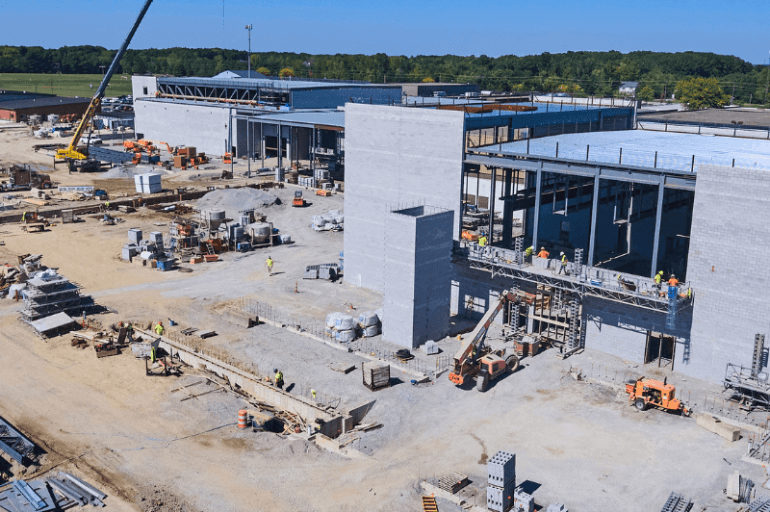
It was eight years ago that the California Court of Appeal issued its first opinion in the ongoing saga between a disgruntled public works contractor and the Fresno Unified School District over the lease-leaseback delivery system. The case continues today. Since that time, additional legal battles, legislative changes to the lease-leaseback law and political wrangling have still not brought closure to the issue. However, on April 27, 2023, the next round of legal battles was decided by a unanimous California Supreme Court when it addressed a very narrow issue in the continuing legal case. A case that has gone on for over a decade!
Background of Davis
In 2012, the Fresno Unified School District utilized California’s lease-leaseback statutes (California Education Code Section 17406) to award a $36.7 million construction contract to Fresno-based Harris Construction to build Gaston Middle School in the City of Fresno.
Lease-leaseback is a procurement delivery tool that allows certain school districts to bypass traditional hard bidding and award a construction contract to a contractor based on requests for proposals (RFP), instead of simply the lowest bid through a construction lease.
The enabling legislation for Lease-Leaseback started post World War II at a time in which K-12 school districts were desperately trying to build schools but did not have the immediate funding available for construction. Lease-leaseback was supposed to allow school districts the flexibility to award and finance school construction through alternative means. A traditional “lease” between the district and the general contractor would allow the construction costs to be paid back over time.
Stephen K. Davis is a disgruntled Fresno general contractor. He was not awarded the contract for Gaston Middle School but argued he should have been able to competitively bid for the construction work. In 2012, he filed a taxpayer lawsuit against Fresno Unified claiming that the contract to build the school should have been competitively bid. He further argued that the Lease-leaseback utilized by the Fresno Unified School District was a sham and not a real lease. He sought taxpayer standing to challenge the entire contract, which, if successful, would force Harris Construction to disgorge (return) $36.7 million back to the School District due to entering an illegal contract. As will be discussed later, he also sought to file a “Reverse Validation” action seeking to undo the contract.
-
Davis Appeal- Part 1
Fresno filed legal challenges to Davis’s case and the trial court ultimately dismissed the case outright. Davis appealed. In 2015 the California Court of Appeal overturned the trial court, finding that the Lease-leaseback utilized by the District was in fact a sham and did not meet the requirements of the Lease-leaseback legislation. The case was remanded back to the trial court.
This opinion sent shockwaves through the school construction community and many school districts ceased using Lease-leaseback procurement altogether. This caused the Legislature to pass A.B. 2316, an amendment to Education Code Section 17406 that clarified the requirements of a Lease-leaseback to ensure that it was a true lease arrangement. The Legislature also added a requirement that any Lease-leaseback arrangement must include a skilled and trained workforce requirement as a condition of a school district using this procurement model unless the construction was covered by a Project Labor Agreement (PLA). With this legislative approval, many school districts began utilizing Lease-leaseback again.
-
Davis Appeal- Part 2
After the Davis appeal, the case was sent back to the trial court for further proceedings. Once again, the trial court dismissed Davis’s claims, this time on procedural grounds. The trial court ruled that Davis had failed to timely file a “Reverse Validation Action” challenging the award at the time it was made. Under California law, any member of the public may challenge an award of a public works contract by filing a “Reverse Validation action.” Essentially, a Reverse Validation action asks the Court to invalidate the underlying construction contract on the grounds that the contract was illegally entered. This process is aimed at curtailing graft and conflicts of interest within public works contracting. The public has 60 days after the contract is awarded to challenge the action. The trial court ruled that Davis has failed to timely and properly file his Reverse Validation action and so the Court dismissed the case.
On Appeal, the Court of Appeal rejected the trial court’s ruling that the Reverse Validation action was untimely and improperly brought. The Court noted that the particular financing component of the underlying construction meant that the underlying contract was not subject to a Reverse Validation action. Because no Reverse Validation action was required, Davis’s lawsuit was improperly dismissed. Without a Reverse Validation requirement, Davis was free to proceed with his lawsuit as a taxpayer claim, based on allegations of conflicts of interest between Fresno Unified and Harris Construction and California’s competitive bidding laws.
Of course, Fresno Unified appealed this decision to the California Supreme Court, which accepted the case.
On April 27, 2023, a unanimous California Supreme Court agreed with Davis and the Appeals Court and revived Davis’s lawsuit. The Supreme Court agreed that because of the oddities of the financing arrangement of the underlying project, it did not fall under the requirements of a Reverse Validation Action. Once again, the Supreme Court ruled that Davis was free to pursue his claims of conflict of interest and violation of California’s competitive bidding statutes as an aggrieved taxpayer and his original lawsuit was timely and properly filed. Put plainly, the lack of a legitimate Reverse Validation Action did not doom Davis’s lawsuit. The Supreme Court remanded the case back to the Fresno County Superior Court to continue the litigation.
Implications of the Supreme Court’s Decision
So, what does this all mean for public works construction, particularly the future of the Lease-leaseback delivery system?
It means that depending on how the underlying construction is funded, any aggrieved taxpayer may be able to file a legal challenge against any Lease-leaseback without having to file a Reverse Validation action in Court. Because a Reverse Validation action is a detailed, time-consuming, and expensive process, this will make it easier for any aggrieved contractor to file a legal challenge as a taxpayer when it is not awarded a Lease-leaseback contract and could open the door to more taxpayer challenges to Lease-leaseback arrangements.
This is particularly concerning for any public works general contractor seeking to build a school under a Lease-leaseback arrangement. This delivery system becomes much riskier. Recall, the penalty for violating California’s public works bidding statutes is the disgorgement of the entire contractor fee. Meaning, a public works contractor could be awarded a lease-leaseback, complete construction, get paid, and then have to return all of those construction funds if it is ultimately determined that the Lease-leaseback arrangement did not conform to California law. That decision may not come for years. That is what Davis will now be pursuing as he seeks disgorgement of $36 million from Harris Construction back to the Fresno Unified School District.
This also means that school districts will more closely scrutinize their use of Lease-leasebacks. Just as many school districts stopped using Lease-leasebacks after the first Davis appeal back in 2015, many districts will now pause to consider the legal risks of moving forward with a delivery system that could yield costly and lengthy legal challenges. Fresno Unified has been spending public dollars on legal fees fighting the Davis case for over a decade! Why incur this risk and potential cost if alternative delivery systems, such as design/bid/build, or design/build could be more easily utilized and with less ultimate risk?
It will also be interesting to see if the California Legislature makes any legislative changes in response to this Court decision. It did back in 2015 after the first Davis appeal. It is possible that the Legislature could amend either the Lease-leaseback statute or the Reverse Validation statute to make it directly applicable in this situation and this makes lawsuits in this arena more difficult.
Only time will tell.


 Pursu Agency
Pursu Agency